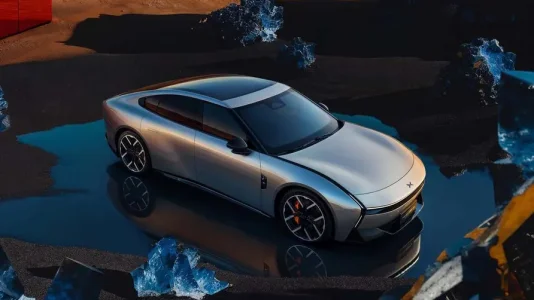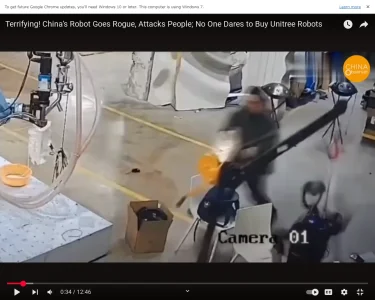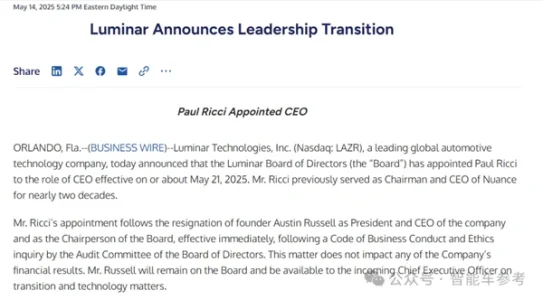You are using an out of date browser. It may not display this or other websites correctly.
You should upgrade or use an alternative browser.
You should upgrade or use an alternative browser.
Chinese Economy Watch (4 Viewers)
- Thread starter rockdog
- Start date
More options
Who Replied?- Joined
- Jul 3, 2024
- Messages
- 1,705
- Likes
- 2,289
China’s Auto Industry Is Collapsing: No Imports Mean No Parts; No US Tariff Relief Means Shutdowns
At the height of the China-US trade war, the Chinese government made a surprising move—quietly exempting over 90% of U.S. automotive chips from tariffs. From Qualcomm to Nvidia, from MCU controllers to the "brains" of autonomous driving, nearly all of these core chips found themselves at the top of the exemption list.
View: https://www.youtube.com/watch?v=4tyd49ojVSU
At the height of the China-US trade war, the Chinese government made a surprising move—quietly exempting over 90% of U.S. automotive chips from tariffs. From Qualcomm to Nvidia, from MCU controllers to the "brains" of autonomous driving, nearly all of these core chips found themselves at the top of the exemption list.
View: https://www.youtube.com/watch?v=4tyd49ojVSU
- Joined
- Jul 3, 2024
- Messages
- 1,705
- Likes
- 2,289
It was like a real-life Rock ’em Sock ’em.
The rise of the machines seems closer than we might like to think. Freaky footage captured the moment that a humanoid robot seemingly snapped and lashed out at its handlers like something out of a dystopian sci-fi thriller.
“This is what the machine uprising might look like,” Belarusian TV outlet Nexta captioned an X clip of the alleged attack, which boasts over 100,000 views.

The robot seemingly lunges at one of the handlers. Jam Press
In the unsettling clip, which was shot at an undisclosed factory in China, the bot is seen dangling from a construction crane on the factory floor near two men looking on cautiously, Jam Press.
They appear to be testing the humanoid droid’s capabilities.
The two are chatting away when, all of a sudden, the automated biped goes berserk, flailing its arms and legs about in a spectacle that evokes a failed prototype from the “Robocop” movies.
At one point, the raging machine lurches forward while swinging, dragging the stand along with it as the men try and avoid getting robo-bopped.

The robot appears to try to robo-bop a worker. Jam Press
During the ruckus, the computer falls to the floor while several other items are knocked off the table.
The clip concludes with one of the men flanking the “angry” automaton and dragging its stand back into place in an attempt to stop its cybernetic rampage.

The machine lies dormant before running amok. Jam Press
Viewers saw the malfunction as a sign that a robo-revolution was upon us, with many appropriately referencing the “Terminator” films.
“Went full terminator,” said one digital doomsdayer, while another apocalypticist wrote, “Sarah Connor was f–king right.”
This is what worries me about robotic surgery,” observed another concerning synthetic surgeons becoming increasingly ubiquitous in operating rooms.
Indeed, this shocking incident comes as anthropomorphic-seeming machines are becoming more integrated into our everyday lives. This past winter, Chinese tech firm Pudu Robotics unveiled the very “I, Robot”-esque D9 humanoid robot, which is designed to revolutionize the way we interact with machines.
Its cutting-edge capabilities include walking 4.5 mph — faster than the average human stroll — navigating stairs and even maintaining balance when knocked off-kilter.
In February, Clone Robotics uploaded a video showcasing the “Protoclone,” an eerily realistic humanoid robot that’s purported to be the “world’s first bipedal, musculoskeletal android.”
While the versatile bot is programmed to complete helpful tasks ranging from food preparation to cleaning and conversation, skeptical viewers deemed the Frankenstein-esque creation “dystopian” and “terrifying.”

 www.yahoo.com
www.yahoo.com
The rise of the machines seems closer than we might like to think. Freaky footage captured the moment that a humanoid robot seemingly snapped and lashed out at its handlers like something out of a dystopian sci-fi thriller.
“This is what the machine uprising might look like,” Belarusian TV outlet Nexta captioned an X clip of the alleged attack, which boasts over 100,000 views.
The robot seemingly lunges at one of the handlers. Jam Press
In the unsettling clip, which was shot at an undisclosed factory in China, the bot is seen dangling from a construction crane on the factory floor near two men looking on cautiously, Jam Press.
They appear to be testing the humanoid droid’s capabilities.
The two are chatting away when, all of a sudden, the automated biped goes berserk, flailing its arms and legs about in a spectacle that evokes a failed prototype from the “Robocop” movies.
At one point, the raging machine lurches forward while swinging, dragging the stand along with it as the men try and avoid getting robo-bopped.
The robot appears to try to robo-bop a worker. Jam Press
During the ruckus, the computer falls to the floor while several other items are knocked off the table.
The clip concludes with one of the men flanking the “angry” automaton and dragging its stand back into place in an attempt to stop its cybernetic rampage.
The machine lies dormant before running amok. Jam Press
Viewers saw the malfunction as a sign that a robo-revolution was upon us, with many appropriately referencing the “Terminator” films.
“Went full terminator,” said one digital doomsdayer, while another apocalypticist wrote, “Sarah Connor was f–king right.”
This is what worries me about robotic surgery,” observed another concerning synthetic surgeons becoming increasingly ubiquitous in operating rooms.
Indeed, this shocking incident comes as anthropomorphic-seeming machines are becoming more integrated into our everyday lives. This past winter, Chinese tech firm Pudu Robotics unveiled the very “I, Robot”-esque D9 humanoid robot, which is designed to revolutionize the way we interact with machines.
Its cutting-edge capabilities include walking 4.5 mph — faster than the average human stroll — navigating stairs and even maintaining balance when knocked off-kilter.
In February, Clone Robotics uploaded a video showcasing the “Protoclone,” an eerily realistic humanoid robot that’s purported to be the “world’s first bipedal, musculoskeletal android.”
While the versatile bot is programmed to complete helpful tasks ranging from food preparation to cleaning and conversation, skeptical viewers deemed the Frankenstein-esque creation “dystopian” and “terrifying.”
Violent humanoid robot snaps — attacks factory workers in wild video: ‘Went full Terminator’
In the unsettling clip, shot at an undisclosed factory in China, the bot is seen dangling from a construction crane on the factory floor near two men looking on cautiously.
China’s Auto Industry Is Collapsing: No Imports Mean No Parts; No US Tariff Relief Means Shutdowns
At the height of the China-US trade war, the Chinese government made a surprising move—quietly exempting over 90% of U.S. automotive chips from tariffs. From Qualcomm to Nvidia, from MCU controllers to the "brains" of autonomous driving, nearly all of these core chips found themselves at the top of the exemption list.
View: https://www.youtube.com/watch?v=4tyd49ojVSU
??
View: https://x.com/tphuang/status/1919945862920184270?t=jvcK5uTBOFgIA7KeUr2EXQ&s=19
City of Alibaba, Geely auto group,Deep Seek, Unitree Robot, Black myth Wukong companies ...
View: https://youtu.be/4hIy9-JqwbQ?si=ICxw9nQxWgvxSXyW
View: https://youtu.be/4hIy9-JqwbQ?si=ICxw9nQxWgvxSXyW
Last edited:
- Joined
- Jul 3, 2024
- Messages
- 1,705
- Likes
- 2,289
- Joined
- Jul 3, 2024
- Messages
- 1,705
- Likes
- 2,289
View: https://www.youtube.com/watch?v=87ieztYy2RM
Xiaomi EVs Have Poor Quality, Fake Claims Exposed, Hundreds of Owners Fight for Refunds
Experts understand that a 500-horsepower car can’t simply prove it’s roadworthy by running a few laps on a track. For established car brands, building a high-horsepower vehicle starts with safety. They need to ensure the car can handle the power, that the chassis is strong enough, and that the brakes can withstand the force.Join this channel to get access to perks:- Joined
- Jul 3, 2024
- Messages
- 1,705
- Likes
- 2,289
SHANGHAI (Reuters) -China's Xiaomi is seeing a slump in new orders for its SU7 electric sedan, analysts said on Wednesday, as the company and its charismatic CEO grapple with a growing consumer backlash that now threatens its runaway sales success.
The sporty electric vehicle quickly became a hit among Chinese drivers after it was launched in March last year. By December, its sales had overtaken Tesla's Model 3 in the world's biggest auto market on monthly basis.
But Xiaomi is now facing a wave of consumer angst that began last month following a fatal accident involving an SU7.
The accident, which is still under investigation, prompted widespread public discussion over the safety of the kinds of smart driving features offered by Xiaomi. Chinese regulators have since further tightened regulatory oversight on the marketing and promotion of such features.
Xiaomi did not respond to a Reuters request for comment for this story.
New orders for the SU7 fell 55% in April from March and the trend continued in May, with a 13,500 orders placed in the first two weeks of the month, Deutsche Bank analysts said in a note on Wednesday.
That compared to 23,000 orders in the second week of March alone, a weekly all-time high.
Xiaomi was pulled into further controversy last week after it apologised for what it called "unclear communication" following complaints from customers.
SU7 owners said the company had falsely advertised the design of a dual-vent carbon fiber hood it offers at an additional charge of 42,000 yuan ($5,826) on its SU7 Ultra.
Nearly 400 owners of the SU7 Ultra had asked for refunds after finding the hood had no air ducts inside, which contradicted previous claims by Xiaomi and its CEO Lei Jun, Shanghai government-owned media the Paper reported on Tuesday.
"This crisis not only exposes the credibility crisis of Xiaomi SU7, but also the distortion of some values in the current new energy vehicle industry," it wrote.
Lei, who is a social media star in China with 26 million followers on Weibo, said on Saturday the past month had been the most difficult period for him since he founded the electronics maker a decade ago.
Other customers and analysts told Reuters that Xiaomi's delivery time estimates for SU7s were creating confusion.
Purchasers have often found the estimates greatly overestimate delivery times, and they receive their cars much sooner than expected.
That's led some analysts to question whether Xiaomi is seeking to create an artificial sense of scarcity as a marketing tactic.
One Chinese blogger calling himself A Zu told Reuters he had created an app allowing buyers to submit their purchase and pick-up information in a bid to better understand Xiaomi's delivery patterns.
When checked by Reuters on Wednesday, Xiaomi's official app gave estimated delivery times ranging from 26 weeks to 11 months.
A SU7 owner himself, A Zu, who declined to share his real name, said he hoped Xiaomi could be more transparent with its delivery arrangements.
Xiaomi has long employed highly successful marketing tactics to sell electronic products such as smartphones, analysts at Chinese consulting firm LandRoads said.
"But unlike digital consumer products, the automobile involves longer purchase decision-making processes and bigger investment by consumers, who will have higher requirements on the brand's capability in fulfilling promises and its long-term credibility," it said.
($1 = 7.2083 Chinese yuan renminbi)
(Reporting by Zhang Yan, Qiaoyi Li, Brenda Goh; Editing by Miyoung Kim and Joe Bavier)
The sporty electric vehicle quickly became a hit among Chinese drivers after it was launched in March last year. By December, its sales had overtaken Tesla's Model 3 in the world's biggest auto market on monthly basis.
But Xiaomi is now facing a wave of consumer angst that began last month following a fatal accident involving an SU7.
The accident, which is still under investigation, prompted widespread public discussion over the safety of the kinds of smart driving features offered by Xiaomi. Chinese regulators have since further tightened regulatory oversight on the marketing and promotion of such features.
Xiaomi did not respond to a Reuters request for comment for this story.
New orders for the SU7 fell 55% in April from March and the trend continued in May, with a 13,500 orders placed in the first two weeks of the month, Deutsche Bank analysts said in a note on Wednesday.
That compared to 23,000 orders in the second week of March alone, a weekly all-time high.
Xiaomi was pulled into further controversy last week after it apologised for what it called "unclear communication" following complaints from customers.
SU7 owners said the company had falsely advertised the design of a dual-vent carbon fiber hood it offers at an additional charge of 42,000 yuan ($5,826) on its SU7 Ultra.
Nearly 400 owners of the SU7 Ultra had asked for refunds after finding the hood had no air ducts inside, which contradicted previous claims by Xiaomi and its CEO Lei Jun, Shanghai government-owned media the Paper reported on Tuesday.
"This crisis not only exposes the credibility crisis of Xiaomi SU7, but also the distortion of some values in the current new energy vehicle industry," it wrote.
Lei, who is a social media star in China with 26 million followers on Weibo, said on Saturday the past month had been the most difficult period for him since he founded the electronics maker a decade ago.
Other customers and analysts told Reuters that Xiaomi's delivery time estimates for SU7s were creating confusion.
Purchasers have often found the estimates greatly overestimate delivery times, and they receive their cars much sooner than expected.
That's led some analysts to question whether Xiaomi is seeking to create an artificial sense of scarcity as a marketing tactic.
One Chinese blogger calling himself A Zu told Reuters he had created an app allowing buyers to submit their purchase and pick-up information in a bid to better understand Xiaomi's delivery patterns.
When checked by Reuters on Wednesday, Xiaomi's official app gave estimated delivery times ranging from 26 weeks to 11 months.
A SU7 owner himself, A Zu, who declined to share his real name, said he hoped Xiaomi could be more transparent with its delivery arrangements.
Xiaomi has long employed highly successful marketing tactics to sell electronic products such as smartphones, analysts at Chinese consulting firm LandRoads said.
"But unlike digital consumer products, the automobile involves longer purchase decision-making processes and bigger investment by consumers, who will have higher requirements on the brand's capability in fulfilling promises and its long-term credibility," it said.
($1 = 7.2083 Chinese yuan renminbi)
(Reporting by Zhang Yan, Qiaoyi Li, Brenda Goh; Editing by Miyoung Kim and Joe Bavier)
- Joined
- Jul 3, 2024
- Messages
- 790
- Likes
- 374
SHANGHAI (Reuters) -China's Xiaomi is seeing a slump in new orders for its SU7 electric sedan, analysts said on Wednesday, as the company and its charismatic CEO grapple with a growing consumer backlash that now threatens its runaway sales success.
The sporty electric vehicle quickly became a hit among Chinese drivers after it was launched in March last year. By December, its sales had overtaken Tesla's Model 3 in the world's biggest auto market on monthly basis.
But Xiaomi is now facing a wave of consumer angst that began last month following a fatal accident involving an SU7.
The accident, which is still under investigation, prompted widespread public discussion over the safety of the kinds of smart driving features offered by Xiaomi. Chinese regulators have since further tightened regulatory oversight on the marketing and promotion of such features.
Xiaomi did not respond to a Reuters request for comment for this story.
New orders for the SU7 fell 55% in April from March and the trend continued in May, with a 13,500 orders placed in the first two weeks of the month, Deutsche Bank analysts said in a note on Wednesday.
That compared to 23,000 orders in the second week of March alone, a weekly all-time high.
Xiaomi was pulled into further controversy last week after it apologised for what it called "unclear communication" following complaints from customers.
SU7 owners said the company had falsely advertised the design of a dual-vent carbon fiber hood it offers at an additional charge of 42,000 yuan ($5,826) on its SU7 Ultra.
Nearly 400 owners of the SU7 Ultra had asked for refunds after finding the hood had no air ducts inside, which contradicted previous claims by Xiaomi and its CEO Lei Jun, Shanghai government-owned media the Paper reported on Tuesday.
"This crisis not only exposes the credibility crisis of Xiaomi SU7, but also the distortion of some values in the current new energy vehicle industry," it wrote.
Lei, who is a social media star in China with 26 million followers on Weibo, said on Saturday the past month had been the most difficult period for him since he founded the electronics maker a decade ago.
Other customers and analysts told Reuters that Xiaomi's delivery time estimates for SU7s were creating confusion.
Purchasers have often found the estimates greatly overestimate delivery times, and they receive their cars much sooner than expected.
That's led some analysts to question whether Xiaomi is seeking to create an artificial sense of scarcity as a marketing tactic.
One Chinese blogger calling himself A Zu told Reuters he had created an app allowing buyers to submit their purchase and pick-up information in a bid to better understand Xiaomi's delivery patterns.
When checked by Reuters on Wednesday, Xiaomi's official app gave estimated delivery times ranging from 26 weeks to 11 months.
A SU7 owner himself, A Zu, who declined to share his real name, said he hoped Xiaomi could be more transparent with its delivery arrangements.
Xiaomi has long employed highly successful marketing tactics to sell electronic products such as smartphones, analysts at Chinese consulting firm LandRoads said.
"But unlike digital consumer products, the automobile involves longer purchase decision-making processes and bigger investment by consumers, who will have higher requirements on the brand's capability in fulfilling promises and its long-term credibility," it said.
($1 = 7.2083 Chinese yuan renminbi)
(Reporting by Zhang Yan, Qiaoyi Li, Brenda Goh; Editing by Miyoung Kim and Joe Bavier)
It is beneficial to XPeng Motors BYD Geely Automobile , Li Auto
- Joined
- Nov 11, 2024
- Messages
- 89
- Likes
- 465
Optimism with Chinese Characteristics.It is beneficial to XPeng Motors BYD Geely Automobile , Li Auto
It is beneficial to XPeng Motors BYD Geely Automobile , Li Auto
Xpeng's recent sales in EU is quite good, and the new P7 is awesome!
Volkswagen-backed Xpeng targets 50% overseas sales by 2035, expanding to 60 countries this year

Volkswagen-backed Xpeng targets 50% overseas sales by 2035, expanding to 60 countries this year
Xpeng aims to sell 380,000 cars this year.
 carnewschina.com
carnewschina.com




View: https://www.youtube.com/watch?v=vBx60GGE7ow
Users who are viewing this thread
Total: 2 (members: 0, guests: 2)
Latest Replies
-
GTRE GTX 35VS Kaveri
- Warlock
-
Indian Navy Developments & Discussions
- Interested
-
Chinese Economy Watch
- E-195
-
Indian Special Forces
- Indradeep Roy
-
Air India AI 171 Crash in Ahmedabad
- Bhartiya Sainik
-
North East States: Law & Order
- crazywithmath
-
Naxal Maoist Insurgency
- Wayfarer
-
Indo EU Relations
- crazywithmath
















